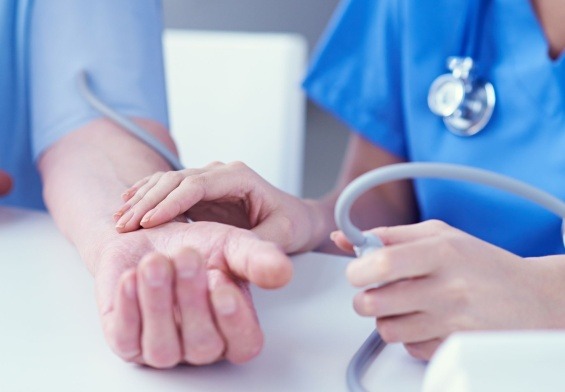 College life is a dramatic change from the comfy convenience of living at home. Even if you were involved in athletics or had a part-time job, chances are you had three nourishing meals, a clean bed and your laundry done on a regular basis. You got your homework done before the weekend so you had free time. Unless you continue to live at home while attending college, you are in for a rude awakening.
College life is a dramatic change from the comfy convenience of living at home. Even if you were involved in athletics or had a part-time job, chances are you had three nourishing meals, a clean bed and your laundry done on a regular basis. You got your homework done before the weekend so you had free time. Unless you continue to live at home while attending college, you are in for a rude awakening.
Big adjustments
The biggest adjustment might be living away from home for the first time, and, in general, dormitory life and sharing a room with strangers. Even if you shared a room with a sibling, it’s just not the same. Strangers coming and going all the time, and their friends as well, and so on. Sometimes you need to get away from it all and the library may become your sanctuary – that’s a good place to go to catch up on your studies and chill out a bit.
#1 – New faster-paced life
There’s a lot of stress associated with college life, especially the first year – the faster pace of trimesters over semesters. Before you know it, you’re immersed in never-ending reading lists, term papers galore and midterms have arrived just as you’re settling in. Some of this stress will be alleviated by an abundance or snacks or fast food since there is not enough time to prepare healthy food, and you’ve probably heard of the term “Freshman 15″, an expression used to describe those 15 pounds generally gained in year #1 of college. Stress-eating and starchy or fattening school cafeteria food is to blame. Try to steer clear of those simple carbohydrates like white bread, rice and pasta and swap them for healthy whole-grain breads or cereals. While you are at it, stay away from the pastries and cookies as well, except for the occasional treat. While the thought of comfort foods like mac and cheese or creamy pudding might sound appealing after a stress-filled day, they are not conducive to healthy eating as they are starchy, carbohydrate-laden foods. While some carbohydrates are beneficial to your body, these treats are not good choices, because the processed sugars and refined simple carbohydrates provide only a temporary satiated feeling, but also trigger a desire for more like carbs and a vicious circle begins. Aim to always reach for complex carbohydrates such as fruits, vegetables and healthy grains to ensure maximum nutritional and digestive benefits and keep your body fueled.
The Freshman 15
Have a mindset before you even enter college that you’ll not succumb to unhealthy eating your first year or any of your college years. Of course if you are involved in collegiate sports, this is not a problem, but the average college student spends hours in class, the library and parked in front of a computer doing homework. Nutritious eating is often the furthest thing from their busy minds.

Hopefully a love for fruit and veggies was instilled in you during your formative years – maybe a family member had a garden and you helped reap the benefits by working in the garden or enjoying the fruits of your labor. Enjoying a crisp apple or a fresh garden salad not only is a nutrition boost to your system, but will keep those pounds from piling on while you traverse through your college years.
Eat nutritiously
While you may think a bag of Cheetos will surely ease pre-exam jitters, it is better to stock up on nutritious granola bars to tuck into your backpack, or have nearby for when you get the munchies. In your corner of your dorm room fridge, be sure to keep protein snacks like low fat mozzarella cheese sticks or flavorful Greek yogurt. Using plain Greek yogurt and flavoring it with berries or fresh fruit helps you steer from the high-sugar brands which give you a momentary lift temporarily, then a sinking, dragged-down feeling later. Don’t stock up on sugary sodas or energy drinks either – those sugary sodas give you cavities and too many energy drinks could be harmful to your health; neither are a substitute for lack of sleep.
Stress of college life
By “eating smart” you give your brain and body the proper vitamins and minerals needed to stay healthy and keep recharged and ready to take on the day. The food and drink that you ingest ultimately affects the brain’s neurochemistry which will control your mood and response to stress, as well as the higher brain functions which control learning, memory and intellectual functioning. As well as eating properly, you must ensure you get enough rest, as well as “down time” to de-stress, thus helping to alleviate any mental health symptoms that the rigors of college life often creates.
To keep your energy up through the day aim for small and frequent meals. That way your blood sugar remains stable, eliminates cravings a/k/a “the munchies” and you are less apt to overeat when you finally get a chance to have your main meal of the day.
Schedule your meals like breakfast and dinner
It is important to ensure you have a good breakfast under your belt before you begin your day. The best choice is a large steaming bowl of oatmeal with raisins and cinnamon sprinkled liberally throughout and topped with milk. It is a quick and easy way to infuse your body with carbs for energy, raisins for iron, cinnamon as a powerful antioxidant and milk for protein.
If you’re rushing from class to class during the day, you might not have time to stop and have a proper lunch. Take the time before you leave in the morning to take along a few snacks like a few granola bars, a Ziploc bag of nuts, or some fruit. Bananas are excellent portable snacks and will give you quick energy and plenty of potassium boost for very few calories and are not messy and time-consuming to eat like other fruits. Pare that banana with a peanut butter sandwich on whole-grain bread and you’ve got a real brain-boosting treat. A peanut butter sandwich can be tossed into your backpack or book bag without fear of spoilage and be munched on hours later after the bowl of oatmeal has sunk to your toes.
Equally important as breakfast is dinner and fitting it into your schedule is important. Don’t schedule dinner too late in the day so that your food does not have time to properly digest before bedtime, and, besides … eating too late will make you feel sleepy or lethargic when you need to get studying done. Better yet, set aside part of a large dinner meal to use for leftovers the next day – pizza tastes as good cold as piping hot. Make dinner a social event, whether you are eating in the cafeteria or dining with friends at the local pizza parlor. You need the camaraderie of friends and fellow students. After all, college is supposed to be a fun time as well as a time to excel scholastically.
Hopefully these top health tips will make your college years productive, healthy and happy and that you will continue these healthy eating habits long into a fruitful career.



